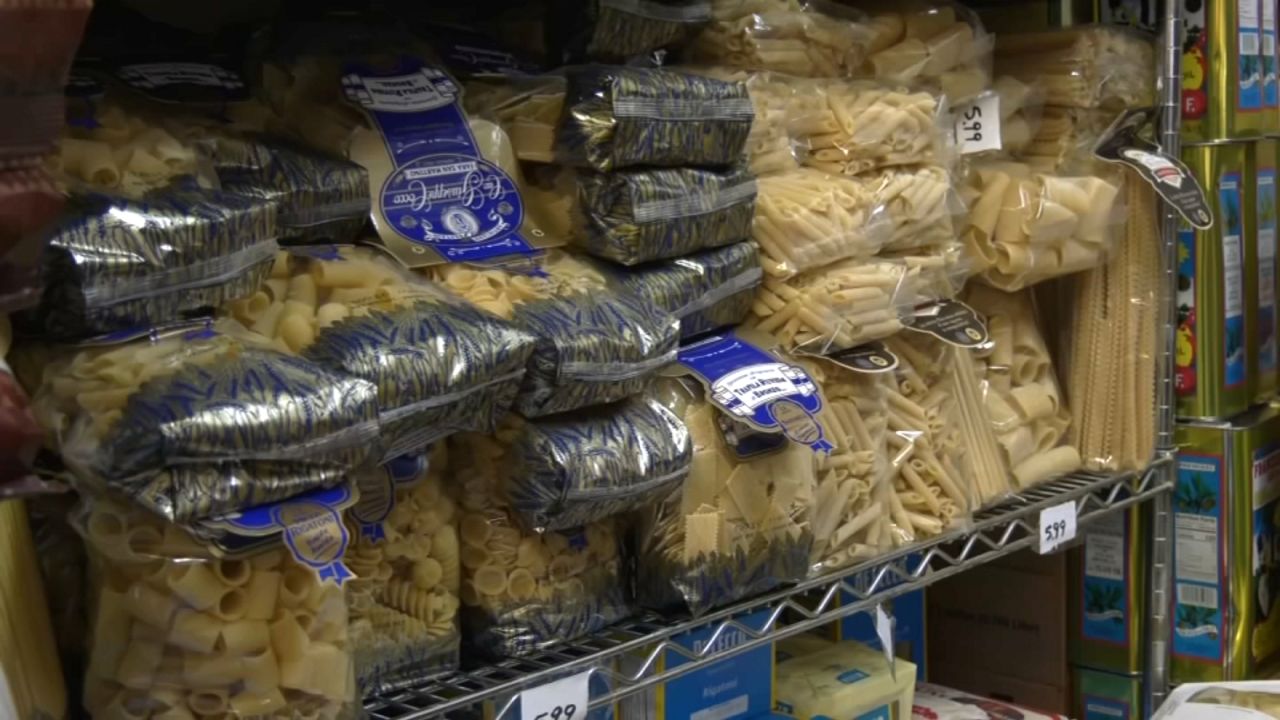Frank Spano is a regular at Teitel Brothers on Arthur Avenue in the Bronx. He loves Giuseppe Coco pasta.
“The flavor, the texture, and I mean, it’s so wonderful you can have it just boil it with nothing,” he said. “It’s just a different, a different level than all the others.”
But the price of his favorite product might be about to double. Giuseppe Coco is one of the 13 major brands that would be subject to a 107% tariff if the Trump administration follows through with plans to target Italian pasta. The earliest this plan would go into effect is January.
Gibert Teitel, who owns Teitel Brothers, a wholesale and retail grocery shop specializing in Italian products in the heart of Little Italy in the Bronx, says people are set in their ways when it comes to the pasta brand they buy.
“Get them to buy American pasta? They are not going to change. I mean, this is what they like — this is what they want. But personally, I think it is unfair,” he said.
Gilbert’s son, Michael Teitel, who works at the store, agrees their customer base is loyal to the brands they love.
“I had a person come in yesterday, and they bought like 10 pounds of it,” he said. “I told her, get it before the increase. She says, ‘I’m going to use it.’”
There is already a blanket 15% tariff on exports from the European Union.
On top of that, the commerce department issued a preliminary recommendation this month for an additional 92% in response to Italian pasta makers “dumping” in the United States.
That means the government is accusing these brands of selling their pasta either below the producers’ cost or below the price they would charge in the Italian market.
Coldiretti, one of the brands impacted by the tariffs, called the dumping accusations “unacceptable and exploitative” in a statement.
“In 2024, pasta exports to the U.S. reached a value of 671 million euros. A strategic market that, with a tariff of this magnitude, would be virtually wiped out, erasing years of growth and investment along the entire supply chain,” Coldiretti said.
Andrew McAllister, attorney and member of Holland & Knight’s International Trade Group, told NY1 this investigation into Italian pasta started pre-Trump.
“This is an existing case against pasta that predates President Trump 1.0, and so the case has been going on for many years. It’s just in this particular review period, the commerce department is proposing, in a way, an adverse finding that’s going to significantly impact importers of these pasta products,” he said. “But I think the importers and the users of this pasta product should be concerned, because there’s a very good chance that a 90% rate or something similar will go into effect early next year.”
The commerce department is stressing that the decision about the tariffs is not final. Meanwhile, President Donald Trump announced on Friday said he was scrapping U.S. tariffs on items ranging from beef, coffee and tropical fruits to combat high consumer prices.
For customers like Frank, he says he is committed to buying Giuseppe Coco for as long as he can.
“I’m still gonna get it. I’m gonna eat less. I’ll savor it more,” he said.
